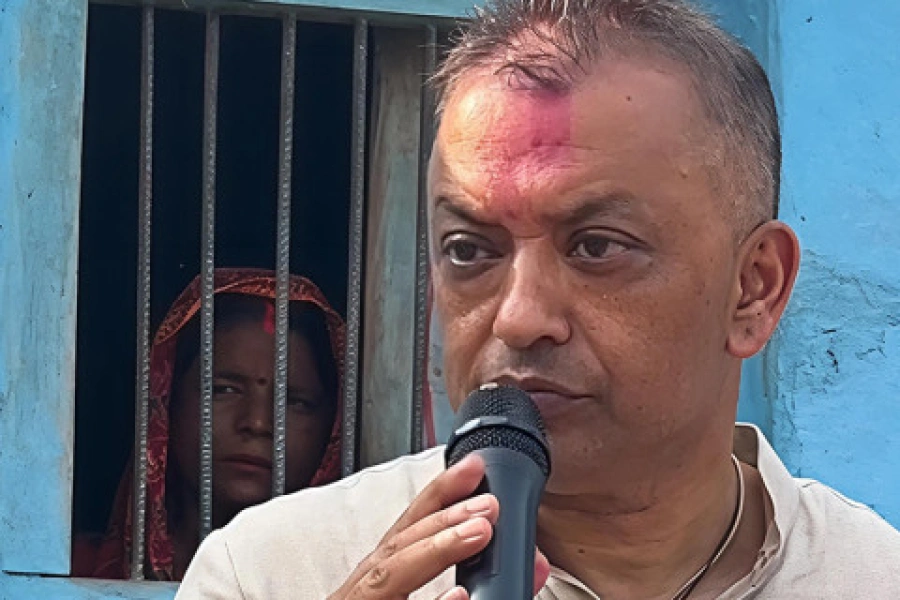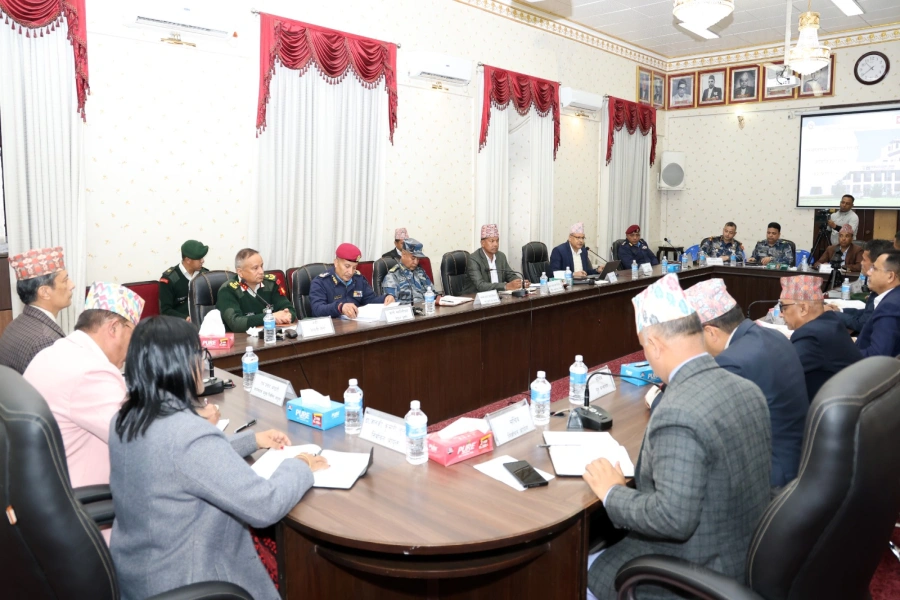"The true horror of existence is not the fear of death, but the fear of life. It is the fear of waking up each day to face the same struggles, the same disappointments, the same pain.”— Albert Camus, The Fall
As I walk into this lawn with a tent, I noticed an elderly man in a light jacket/pullover that covered his upper body and felt a cap fully covering his head in the Kalinga Literary Festival event on a sweaty September afternoon. So fully covered on a warm day? I felt itchy!
Speaking eloquently in short, crisp, clear sentences with brief pauses he was lucid and understandable. Introducing himself he joked, “My mother must have loved Ashok Kumar the famous actor in Bollywood as she gave me his name. Then my mother took me to a spiritual Guru and requested him to give me a new name. “That’s how I became Gurcharan Das, servant of a Guru bowing on his holy feet. In early childhood I was also called Nahin (mean no) Kumar too, as I frequently argued and wouldn’t listen to the commands from the elders. Finally, humility, humbleness became my name as I wished when I grew up.
As I recalled his short write-ups in Times of India and New York Times. I grabbed a seat close to the podium in a packed outdoor setting. He was cool, composed, confident, and smiling as he joked about himself.
An active, energetic “trouble maker” as his mother called him during childhood. Once he stole a rich boy's shining pencil box and put the box on the desk of Ayan, the poorest boy in the class who had none. When the rich boys complained of theft, the teacher finding the stolen pencil box on Ayan's desk, he was punished by being hit sharply on his palm by a ruler. This shriek of pain of Ayan, Gurcharan’s lack of confession while the innocent Ayan was punished, as he recalls and the remorse and guilt lasted forever. Over time, they become good friends. On the last day of India-Pakistan partition,while there is mayhem and killings of Hindus in Lahore, Ayan’s Muslim family give shelter to Das’s family and saves them until the Muslim killers find out, they help the family to escape and run for their lives.
The “horror of partition was my moment of political awakening,” he recounts. ‘It rendered 10 million homeless, 20 million Hindus left West Punjab and East Bengal, while 18 million went the other way to Pakistan. Over half a million lost their loved ones. Over 2 million people were missing; 75000 were abducted and raped.’ The most painful moments: ‘I watched a tall handsome police officer standing still on the platform. All of a sudden two teenage Sikh boys emerged from nowhere. They shouted ‘Musalman’ and thrust their kirpan through their behind. He did not cry. He just fell and died.’
Gurcharan’s life evokes a sense of justice and commitment to humanity and goodness as his cherished value inside his heart. He is a classic liberal, with faith in a market economy that promises expansion with job growth and alleviation of poverty in India. ‘Wealth creation comes before distribution!’ He applauds liberalization initiated by Narshing Rao, Manmohan Singh and Atal Bihari Vajpayee among Indian leaders!He takes pride that India now is the fourth largest economy!
In early 1950s he moved with his family to Washington DC and recalls how in his new American school his mother suggested the vice-principal move her son to higher grade as he was too smart for his class. A boy of color, he was cautioned ‘NOT to dream too big for his shoes’- the racism in America in the 50’s as he experienced. Color and caste- based prejudices are still the biggest global challenges to humanity, he points! When he graduates High School with straight A’s and wins full scholarship to all top three universities: Harvard, Yale and Princeton, his School finally recognizes his stellar academic record that school had such a record before!
In his new American school on a girl classmate’s birthday party, in a game the kids played, the reward was:the winning boy got to kiss a girl of his choice,but the black boys were supposed to kiss only black girls and white boys only whites in a segregated America. Being a brown, neither black or white he kisses all girls black and white! What a fun it was, he laughs, as he outsmarted all the boys.
Another Sort of Freedom is an honest memoir of the author’s struggle for the search for freedom from the shackles of life despite his middle-class life of comfort and security. It turns out on every turn as he decides to give up privilege, position, status by walking out of job as he keeps on embarking upon a new job with more money, comfort and privileges. The magic? Belief in your calling, confidence in your skin and NOT giving a damn what the world thinks, he claims!
Gurcharan was born in Lyallpur, Punjab, in 1942, during World War II, when “Hitler, Churchill and Hirohito were bashing everyone around.” His mother wrote in her diary, 'This is a restless baby.' By age two he had become 'a difficult child', and by three she was calling him a 'troublemaker'. He discovered one day that he could run, and “he has been running ever since.”He recalls!
Freedom of press means freedom in country: NC General Secretary...

In his journey of life, the Partition's chaos in which millions were displaced, killed, lost and raped leaves a scar on his psyche. While setting out to become an engineer, he ends up with a philosophy degree from Harvard. Abandoning a promising academic career in ivy-covered halls chooses to become a salesman for Vicks VapoRub in India's dusty bazaars. This finally leads him to the CEO's position of Procter & Gamble India. One day, at the peak of his professional life, his high-powered corporate mask crumbles, and he walks away to become a celebrated writer and public intellectual with several books to his credit. Dismantling the chains that shackled him by giving up the cushy comfort of corporate life he becomes a “free” man at last! It’s “moksha” he was hunting all his life, he claims!
His story is candid, witty and wry, filled with deep introspection at every turn alongside observation on the author's encounters with history on four continents.
‘Everyone has three lives: a public life, a private life and a secret life, says Gabriel, Garcia Marquez. I’d thought I had only two-a public life in business, now I realized That I might have a third one. It was the secret life of an involuntary explorer of my consciousness. I too was a mumukshu.”
“I was overcome by the grandeur of the universe; fortunate I was alive and wondering why we are here. Where did we come from? My father’s response has been God but I had discovered the empiricist’s view that knowledge is based on evidence. My father had barely spoken about his spiritual path, like Lao Tsu, that those who speak don’t know. Spiritual truth couldn’t be put into words, he felt, it had to be experienced.”
“Watching yourself in a mirror is like talking to yourself-like the Upanishad’s two birds. I was wondering if I’d been a good person. “A calm modest life might bring more happiness than all the striving and restlessness in the pursuit of happiness. Despite the restlessness and discontent, life has been worth living.”He sums up!
After his talk was over, I had fifteen minutes with him in a noisy busy corner. Surrounded by throngs of people lined up to have books signed with interruptions it wasn’t quite focused and penetrating conversation I prefer with artists and writers, yet it was a fabulous chat with aman who has accomplished so much one can savor, enjoy and appreciate!
My brief question and answer session:
Arun: The essence of life?
Gurcharan Das (GCD): It’s all here and NOW! This MOMENT! That’s it!
Arun : Goal of life?
GCD: Being a good, caring and compassionate person!
Arun : Your key advice to fellow men?
GCD: Take your work seriously (your karma) but NOT yourself. A tiny speck of dust that we are, you will be blown away one day!
Arun; Your sense of morality?
GCD: To be aware and be considerate towards others.
Arun: Self-lesson for you?
GCD: To rid the guilt I carry for life for NOT standing up when Ian was punished for my mischief.
Arun: Did Ayan forgive you?
GCD: I think he did as we became best friends!
Arun: The biggest life lesson?
GCD:A selfless act of goodness is brighter than all the stars and source of happiness.
Arun: Is there a meaning in life?
GCD: There is no inherent meaning in life. One has to give meaning!
Arun: Your self-talk?
GCD: If gods could create in a spirit of play (Leela) shouldn’t I be freer, laughing and living lightly?
“So have a little fun
Soon enough you will be dead
And burning in hell” -George Carlin
Arun: Final words?
GCD: Live lightly, laugh frequently, give generously and think of others!




























-1200x560-1771928761.webp)









